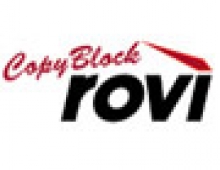
Macrovision's HackU at E3 Showcases How Successful Publishers Protect Their Games
Study Shows 73% of pirated game players purchased within one month when free versions were not readily available.
Macrovision announced that the company will sponsor a third installment of the popular "Hacker University" (HackU) at the E3 Expo May 18-20, 2005, Los Angeles Convention Center. A Macrovision white paper entitled the "The ROI of Content Protection for Games" will be available for those who attend. In addition, Macrovision will be giving away one PlayStation Portable at each session.
This year's HackU will provide timely coverage of the growing threat of game hacking, combined with its real-world impact on revenues. The hacker community's previous focus on PC and online gaming has expanded to include the Xbox and Sony PlayStation 2 platforms, further impacting game developer and publisher revenues. The HackU sessions will introduce Macrovision's concept of game lifecycle value management by developing an understanding of how hackers work, a method to beat them, a workflow process to improve ROI, and a blueprint to actively promote and maintain games after release.
"Game hacking has hit the mainstream and is no longer a marginal activity undertaken by a select few," said Rob Ellison, director of product management at Macrovision. "The revenue impact is significant and HackU offers a fresh, real-world perspective that will empower game developers and publishers to address the issue."
Macrovision recently conducted a survey of 9,000 video gamers showing that 21% of console gamers and 40% of PC gamers play pirated games. Most importantly, 73% of respondents state that they would have purchased the game within one month if a free version had not been readily available. This high level of piracy is surprising, particularly on "secure and closed" console systems.
The study also shows that 43% of all gamers who play pirated games download over 15 pirated titles a year. Over 74% of downloaded pirated games came from Internet websites or peer-to-peer networks, while 21% are copied from friends. Of those who play pirated console games, 64% have installed mod chips on their consoles.
This year's HackU will provide timely coverage of the growing threat of game hacking, combined with its real-world impact on revenues. The hacker community's previous focus on PC and online gaming has expanded to include the Xbox and Sony PlayStation 2 platforms, further impacting game developer and publisher revenues. The HackU sessions will introduce Macrovision's concept of game lifecycle value management by developing an understanding of how hackers work, a method to beat them, a workflow process to improve ROI, and a blueprint to actively promote and maintain games after release.
"Game hacking has hit the mainstream and is no longer a marginal activity undertaken by a select few," said Rob Ellison, director of product management at Macrovision. "The revenue impact is significant and HackU offers a fresh, real-world perspective that will empower game developers and publishers to address the issue."
Macrovision recently conducted a survey of 9,000 video gamers showing that 21% of console gamers and 40% of PC gamers play pirated games. Most importantly, 73% of respondents state that they would have purchased the game within one month if a free version had not been readily available. This high level of piracy is surprising, particularly on "secure and closed" console systems.
The study also shows that 43% of all gamers who play pirated games download over 15 pirated titles a year. Over 74% of downloaded pirated games came from Internet websites or peer-to-peer networks, while 21% are copied from friends. Of those who play pirated console games, 64% have installed mod chips on their consoles.















